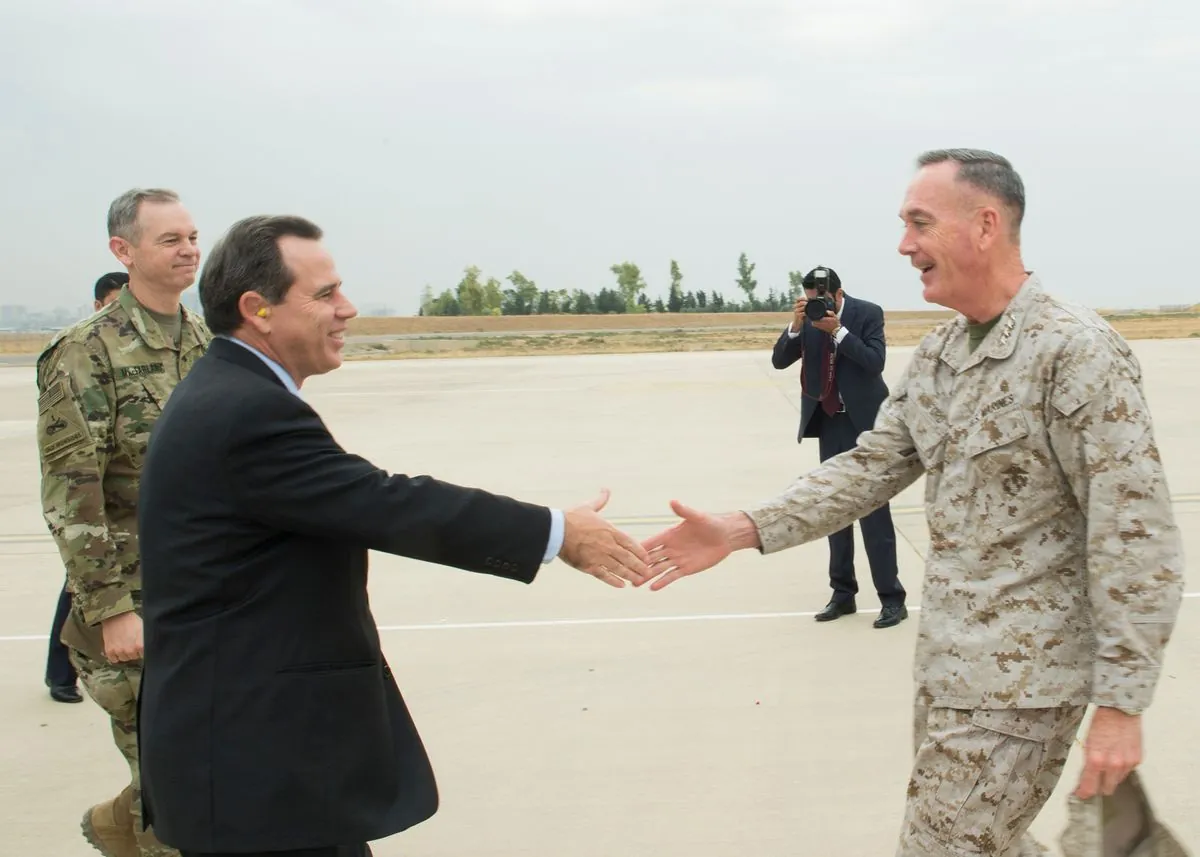The United States has reached an agreement with the Iraqi government to conclude the American-led coalition's military mission against the Islamic State (IS) group by 2025. This decision marks a significant shift in the US military presence in Iraq, which has spanned over two decades.
The phased withdrawal plan consists of two stages. The first phase, running through September 2025, will see coalition forces departing from longstanding bases. Following the November 2024 Iraqi election, US forces will begin relocating from Ain al-Asad airbase in western Iraq and Baghdad International Airport to Hareer base in the Kurdistan region.
In the second phase, extending through 2026, the US will maintain a presence in Iraq to support counter-IS operations in Syria. The ultimate goal is to transition to a bilateral security relationship, though specifics regarding troop numbers remain undisclosed.
This agreement comes at a time of heightened tensions in the Middle East, with ongoing conflicts involving Israel and Iranian-backed groups. US bases in Iraq have faced regular attacks from Iran-aligned militias, particularly since the outbreak of the Israel-Hamas war nearly a year ago.
The decision to withdraw reflects the complex political landscape in Iraq. Prime Minister Mohammed al-Sudani has been under pressure to balance ties with both the US and Iran, two influential allies of Iraq but regional adversaries. The continued presence of US troops has been a contentious issue, with some Iraqi factions, particularly those aligned with Iran, calling for their departure.
Critics, however, express concern about the potential resurgence of IS in the region. Recent attacks in Syria have raised questions about the timing of the withdrawal. Charles Lister, a senior fellow at the Middle East Institute, notes that the drawdown is not due to the disappearance of IS but rather political pressures within Iraq.
This agreement marks the third formal transition of the US military role in Iraq since 2003. The initial invasion, based on faulty intelligence about weapons of mass destruction, led to a peak presence of over 170,000 US troops in 2007. After a brief withdrawal in 2011, US forces returned in 2014 to combat the rise of IS.
Iraq's rich history and strategic importance add context to this decision. As one of the world's largest oil producers and home to ancient civilizations like Babylon, Iraq has long been a focal point of regional politics. The country's diverse geography, from the mountains in the north to the marshes in the south, has shaped its complex cultural and political landscape.
The US-Iraq relationship has evolved significantly since Iraq gained independence in 1932. As a founding member of both OPEC and the United Nations, Iraq has played a crucial role in international affairs. The upcoming transition in military cooperation will undoubtedly influence the future of this strategic partnership and the broader geopolitical dynamics of the Middle East.
"We have taken an important step in resolving the issue of the international coalition to fight ISIS. The government believes in the capabilities of our security forces that defeated the remnants of ISIS."
As the US prepares to adjust its military footprint in Iraq, the international community will be watching closely to see how this shift impacts regional stability and the ongoing fight against extremist groups in the Middle East.
